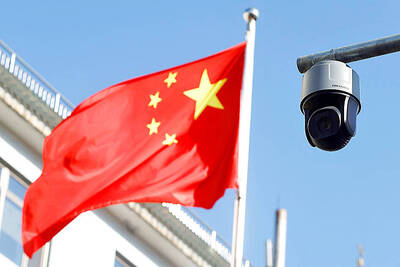Passengers on flights departing from Taiwan can get a full refund if they opt not to take a flight that has been delayed by more than five hours, according to a revision to aviation rules by the Ministry of Transportation and Communications.
The rule took effect yesterday.
It was the first time the ministry set a time frame for handling disputes over flight delays.
The rule is also applicable to cases involving inclement weather, Civil Aeronautics Administration Air Transport Division Director Han Chen-hua (韓振華) said.
“Passengers do not have to take the refund, but the measure gives them another option,” Han said, adding that the revised rule follows the EU standard.
There had previously been no provisions for compensating passengers if they opted not to take a flight after a long delay.
The Regulations Governing the Mediation of Disputes Arising Between Civil Aviation Passengers and Air Carriers (民用航空乘客與航空器運送人運送糾紛調處辦法) stipulate that if a flight is delayed for more than 15 minutes on a domestic routes or 30 minutes on international routes, the carrier has to “explain to passengers in detail the reasons” for the delay and “the manner in which it would deal with the situation.”
The new rule applies to both local and international carriers flying out of Taiwan, Han added.

POLAM KOPITIAM CASE: Of the two people still in hospital, one has undergone a liver transplant and is improving, while the other is being evaluated for a liver transplant A fourth person has died from bongkrek acid poisoning linked to the Polam Kopitiam (寶林茶室) restaurant in Taipei’s Far Eastern Sogo Xinyi A13 Department Store, the Ministry of Health and Welfare said yesterday, as two other people remain seriously ill in hospital. The first death was reported on March 24. The man had been 39 years old and had eaten at the restaurant on March 22. As more cases of suspected food poisoning involving people who had eaten at the restaurant were reported by hospitals on March 26, the ministry and the Taipei Department of Health launched an investigation. The Food and

A fourth person has died in a food poisoning outbreak linked to the Xinyi (信義) branch of Malaysian restaurant chain Polam Kopitiam (寶林茶室) in Taipei, Deputy Minister of Health and Welfare Victor Wang (王必勝) said on Monday. It was the second fatality in three days, after another was announced on Saturday. The 40-year-old woman experienced multiple organ failure in the early hours on Monday, and the family decided not to undergo emergency resuscitation, Wang said. She initially showed signs of improvement after seeking medical treatment for nausea, vomiting and diarrhea, but her condition worsened due to an infection, he said. Two others who

The long-awaited Taichung aquarium is expected to open next year after more than a decade of development. The building in Cingshui District (清水) is to feature a large ocean aquarium on the first floor, coral display area on the second floor, a jellyfish tank and Dajia River (大甲溪) basin display on the third, a river estuary display and restaurant on the fourth, and a cafe and garden on the fifth. As it is near Wuci Fishing Port (梧棲漁港), many are expecting the opening of the aquarium to bring more tourism to the harbor. Speaking at the city council on Monday, Taichung City Councilor

Taiwanese should be mindful when visiting China, as Beijing in July is likely to tighten the implementation of policies on national security following the introduction of two regulations, a researcher said on Saturday. China on Friday unveiled the regulations governing the law enforcement and judicial activities of national security agencies. They would help crack down on “illegal” and “criminal” activities that Beijing considers to be endangering national security, according to reports by China’s state media. The definition of what constitutes a national security threat in China is vague, Taiwan Thinktank researcher Wu Se-chih (吳瑟致) said. The two procedural regulations are to provide Chinese